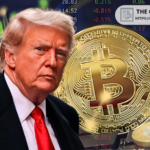The chairman of Russia’s second-largest bank has stated that he believes the Chinese yuan has a strong chance of becoming the world’s primary reserve currency instead of the U.S. dollar. He pointed out that the Russian central bank has already started investing its reserves in yuan, and a significant portion of the trade between Russia and China is conducted using yuan and the Russian ruble.
VTB Bank President Foresees Chinese Yuan Replacing US Dollar as Global Reserve Currency
During a recent Russian-Chinese business forum in Shanghai, Andrey Kostin, the Chairman of VTB Bank, reportedly expressed his belief that the Chinese yuan will replace the U.S. dollar as the global currency for reserves and settlements within the next 10 years.
According to a statement quoted by Sputnik, Andrey Kostin, the Chairman of VTB Bank, noted that China is currently the world’s second-largest economy and is on track to become the largest in the near future. He expressed his belief that there are strong indications that the Chinese yuan will replace the U.S. dollar as the primary global currency for reserves and settlements within the next decade.
Kostin further mentioned that the Russian central bank is already directing its reserves towards investments in yuan, and a significant portion of the trade between Russia and China, approximately over 70 percent, is conducted using both yuan and the Russian ruble for settlements.
The Chairman of VTB Bank highlighted that the current monetary and financial system, which has been established for many years, ensures the dominance of the United States and its Western allies. The U.S. dollar and the euro together account for about three-quarters of global settlements. He emphasized that although the dollar holds the position of the world’s primary reserve currency, the collective Western powers, especially the United States, have been utilizing the dollar as a weapon.
Also Read This Related: Chinese City Unveils Policy Draft to Foster Metaverse Industry Growth
In February, the U.S. Treasury Department imposed extensive sanctions on VTB Bank and Sberbank, the two largest banks in Russia. Meanwhile, Russia and China have been strengthening their economic relationship and opting to use their own currencies in trade.
In April, the Chinese yuan surpassed the U.S. dollar as the most traded currency in Russia. This growing trend is expected to continue as both countries aim to reduce their dependence on the U.S. dollar.
Concerns have been raised by several individuals about the potential loss of global reserve currency status for the U.S. dollar due to its weaponization. Many countries are increasingly advocating for the use of their own national currencies to decrease reliance on the dollar.
The BRICS economic bloc has been actively pursuing de-dollarization efforts and has even proposed a common currency. Additionally, ten Southeast Asian nations have agreed to promote the use of their respective national currencies, and high-ranking officials from nine Asian countries recently convened in Iran to discuss de-dollarization strategies. However, the International Monetary Fund (IMF) does not anticipate a swift shift in USD reserves despite the growing trend of de-dollarization.
Important: This article is intended solely for informational purposes. It should not be considered or relied upon as legal, tax, investment, financial, or any other form of advice.









